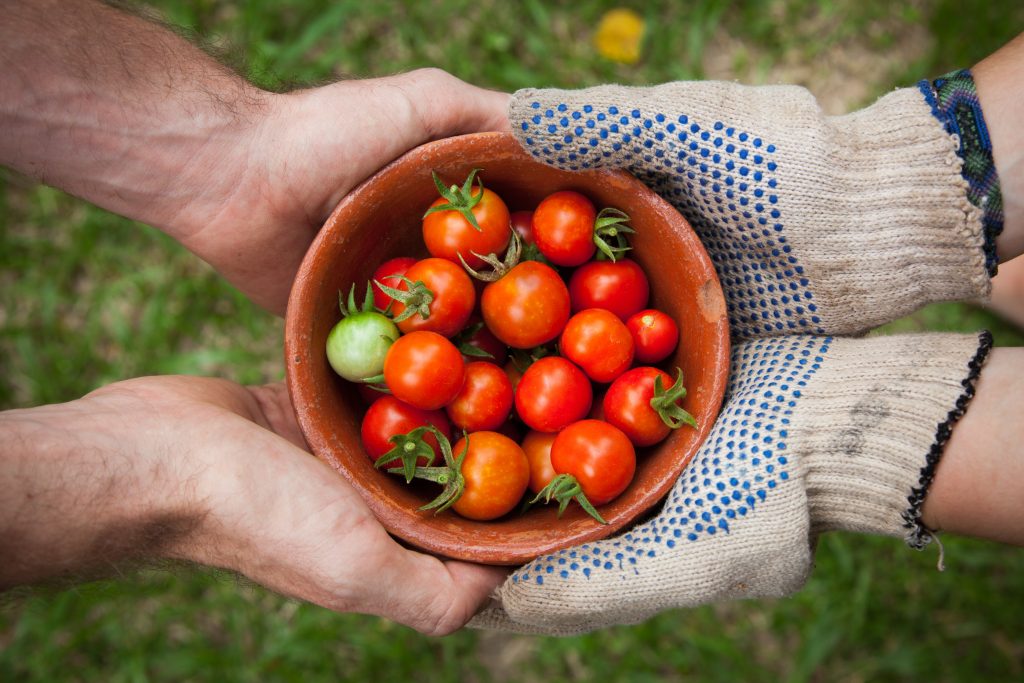We are one month into a brand new decade. Nourish looks forward to continuing work on promoting Scotland’s Well-being agenda…..

Have you heard Nicola Sturgeon (and others?) talking about the ‘Well-being Economy’? Our First Minister argues that we cannot go on measuring our successes just in terms of GDP growth. Firstly, GDP measures only the sum of economic activity which includes things like illegal drug dealing but not unpaid caring. Secondly, our economy cannot go on growing indefinitely, bearing in mind that our planet has only limited resources. Current models have resulted in growing inequalities (foodbanks!), environmental degradation and climate change. Sturgeon boldly suggests that we need to start using a whole new set of additional indicators to help ‘change the focus to …put well-being at the heart of everything we do.’ … ‘to create a ‘better, healthier, fairer and happier’ Scotland, and lead the world to do the same.
Recently, Nourish hosted Katherine Trebeck, co-author of the book The Economics of Arrival (with Jeremy Williams, Policy Press 2019) in our November conference. The book’s title suggests that models of infinite growth, progress and development have done their time – we can now move on to considering ourselves as having ‘arrived’. We can start enjoying the abundance we have achieved and settle into a ‘steady-state’ of plenty. And this needs a different kind of economic model. The book helps imagine ‘a grown-up economy in which everyone can make themselves at home’ with lots of tried and tested realistic examples that are already contributing towards this alternative world. The book is inspiring and hopeful. Perfect for the start of a new decade.
So, what does it say about what this could look like? How would it work? How do we get there?
The book suggests we need to think of ourselves as working towards a better instead of a bigger economy. Of human social instead of material flourishing. A place in which longer-term planning and budgeting is routine and where upstream investments are made to prevent damage (e.g. with the use of dividends). In the first instance, there needs to be a focus on redistribution e.g. restoring the value of benefits to vulnerable sectors of society to reflect the real cost of living. Secondly, there need to be ways of tackling the causes of current inequalities with models of predistribution. Measures that reshape the economy so as to distribute its outcomes more evenly in the first place. Examples include shortening and redistributing workhours, restoring work contracts or implementing a Living Wage.
We know from our work with foodbank users that in-work poverty is increasingly prevalent – UK Poverty 2018 estimates that 4 million workers are facing food insecurity. It is not surprising to see the above measures recommended in our Menu for Changereport. A Good Food Nation Bill that enshrinesThe Right to Food in law would also support a predistribution model. It would shift the focus from retrospectively correcting social and environmental injustice to proactively writing a comprehensive national food plan.
The book suggests promoting not-for-profit and collaborative instead of competitive business and organisational models. Recording, rewarding and encouraging volunteer work including domestic caring responsibilities. ‘Communing’ and introducing stewardship of common resources such as land, water, other natural resources and basic human needs. Implementing the circular economy. A whole host of other new business models and ways of operating. A final chapter makes a plea for democratic as opposed to elitist or ‘expert-driven’ models. History shows that the latter, however well-intentioned, do not genuinely reflect everyone’s quality of life and how it can be fixed.
Nourish continues to work on a range of projects that promote these ambitious alternative agendas in our small ways. Consider our support for the Scottish Farm Land Trust, our work on supporting small food producers to grow the local food economy, or the Dignity Principles in our guide for community food organisations.
So, instead of measuring GDP growth, what could indicate our ‘well-being’ in more meaningful ways? How about: the number of households that make home-made jam, chutney or similar for their friends? We would know 1) they have access (physically, financially) to the raw ingredients; 2) they are spending time in their kitchens actively practising food skills; 3) they are proud enough of what they have produced to share it; and 4) they have friends to share it with. Tell us your example of a good ‘well-being’ indicator (email miesbeth@nourishscotland.org.uk)
And how else can you get involved in our work this year? Sign up for our newsletters? Add your voice to an upcoming consultation? Become a member? These are also ways in which you can enable us to do more. We look forward to hearing from you!